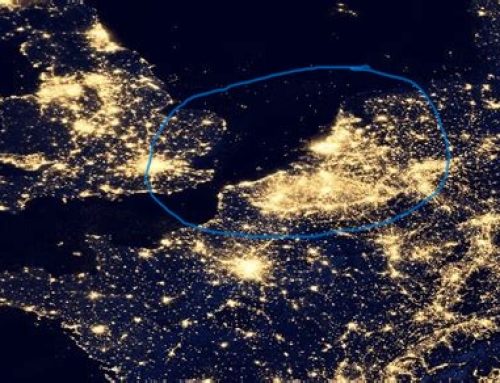History 2: Local AiREAS Eindhoven

With the start of Local AiREAS Eindhoven a few blocking issues came to the table that had to do with the legal structure of our democracy. First of all it concerned the formal membership of the city itself to its own Local AiREAS.
Legal impediments:
- Government is needed in the context of AiREAS from a territorial point of view. We are going to deal with issues that involve usage of public resources and infrastructure. This needs to be coordinated and facilitated.
- Also the local government is the formal tax authority that deals with the spending of the public money collected from the citizens.
- From a legal point of view the government can invest in a venture through subsidies but cannot participate in the same because of its bureaucratic control responsibility.
- From an AiREAS point of view the group cannot take responsibility for co-creation of a healthy city if the city governance is not participating.
The dilemma could only be solved by either setting AiREAS or the ruling laws aside. From a living lab point of view, calling it all an experiment, the setting aside of ruling laws became the option to be applied. If the precedent eventually would prove successful then legal measures could be taken on national level to facilitate value driven cocreation and government membership.
Financial impediments
When the Intelligent Measurement System (ILM) project was determined and defined, including the funding commitment from the government officials, a strange, new process started. The internal one within government to free the taxfunds.
- The impediment was that a citizen’s initiative like AiREAS develops a complex humanitarian task of regional health that is considered a universal responsibility for sustainable progress above any economic and political consideration. Why then can a Local AiREAS not directly have access to the citizen’s taxed means? Simply because stuff like AiREAS did not exist yet. It’s the first.
- Why does a complex humanitarian co-creation, directly involving the best experts available in the country or worldwide, need to be judged AGAIN for allocation of financial means by a group of civil servants and politically colored inexperienced citizens in the city council? It feel wicket and double
- The acceptance of universal values of health and environmental harmony, which do have some legal backing in the original democratic system, tends to be made secondary to bureaucracy, money and money driven politics.
- This is the type of immorality that is being challenged by global activists and United Nations. It would suggest the need for a system transformation that the system is not suited to do by itself. Structures like AiREAS then prove to be transformative as they function aside in a constructive way and point out the obstacles that need to be eliminated.
Those points cannot of course be solved immediately simply because they challenge the current democratic structure of our nation. It did show however how complex the global issue of air pollution and climate change is when dealing within the local political and economic context if it is anything else than based on sustainable human progress.
That is why AiREAS founder Jean-Paul Close decided to give the cocreation venture and new age democracy a different name: Sustainocracy, or “a democracy with a sustainable humanitarian purpose”. The process of AiREAS was published in his book in Dutch that appeared in autumn 2012 and in international scientific papers about “spirituality and ethics in economic systems”, one of which is being published by Springer scientific publisher in autumn 2014. The sustainocratic venture is also the basis of the transformation economy, an instrument to address the key complex hotspots in the world outside the fragmented economy of growth. The transformation economy feeds and repairs the old economy of growth with new market leadership instruments, creating a totally new economy and economic balance. Proof of this is rolling out of AiREAS in the course of 2014 and will show its effects in the next few years.
When dealing with the first Local AiREAS Project in Eindhoven the team was ready in January 2012 and it took until October 2012 to get the funding submitted to AiREAS. In between the government partner had to produce first a seperate internal file and go past all the internal departments to get approval. In AiREAS it was expected that the process would go much faster than it did. The leading Sustainocrat, Jean-Paul, planned a worldwide announcement in June 12. The 6 month time span, with a clear dot on the horizon was also necessary to keep the group together. A lot of work had been done, agreements thought to be committed, so frustration was growing about the time needed to get formally going. A formal announcement kept the group alive while government acted within its own complex constraints.





[…] Blog 3: Local co-creation […]